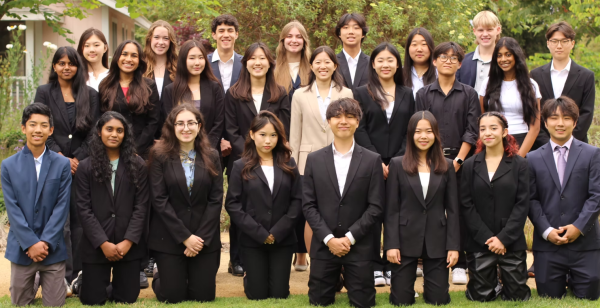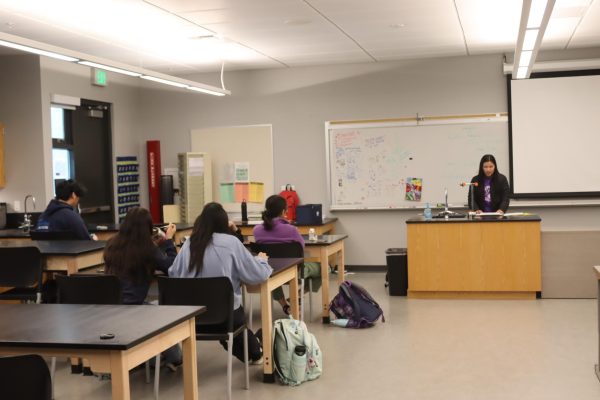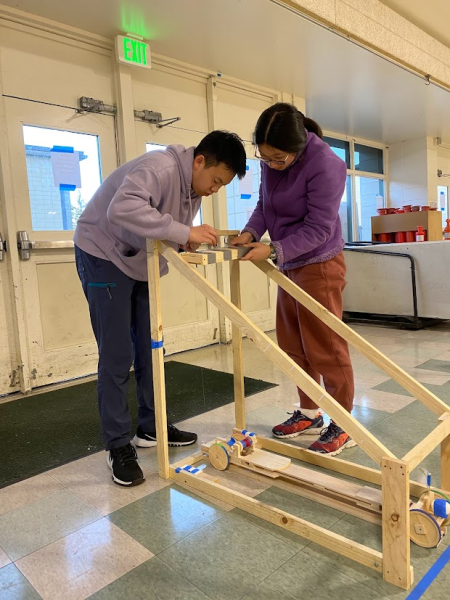Seniors, listen up!
How teachers recommend you spend your last semester
Photo by Avalon Allen
Graduation is finally in sight, but it’s still important to avoid “senioritis.”
Seniors have only one more high school semester to deal with. College applications are finished and students are spending time with friends and family before they leave. In just a few months, they will be walking across the stage with their diplomas in hand, ready to take on college and adulthood.
Despite the end seeming near, it is still important to stay focused on school in order to avoid dreaded “senioritis.” Since freshman year, students have been cautioned about this apathetic mentality and the negative consequences it can produce. Though such warnings may interfere with plans for relaxing and rest, they should not be ignored.
“Senioritis is a big issue second semester,” physics teacher Kathleen Shreve said. “I think it’s part excitement, part relief for students, as they hear back from colleges. But that often translates into apathy because they feel like they’ve reached their goals.”
As secure as being admitted into a university may seem, second semester grades can still impact your future.
“If you get a D, you’re likely to get your acceptance rescinded,” College and Career Center adviser Mary Lund said. “So we highly stress to do well. The elite colleges don’t like to see even a C.”
Furthermore, it is easy to forget that university requirements are not the only thing you need to fulfill. HHS has set demands regarding your grades and failure to satisfy them can have disastrous results.
“Second semester has a huge impact on getting in and staying in college,” AVID and math teacher Matthew Guevara said. “Because one of the prerequisites for getting into college is a high school diploma. So you need to make sure that you take care of all of your classes in order to get the high school diploma.”
If the possibility of losing either their admission into a university or their high school diploma does not scare them into staying productive, hopefully seniors will recognize that being an efficient student is still imperative even after graduation. Shreve said there are benefits to staying a dedicated senior.
“It makes the transition easier,” Shreve said. “If you keep your momentum going through the end of high school, it’s easier to jump right into college.”
Guevara also said that rather than viewing your last semester as a period filled with unnecessary work, treat it as a time to refine and develop both your study skills and your independency.
“If you’ve already taken care of your graduation requirements, and you only have a couple classes, use that free time effectively building other life skills,” Guevara said.
Guevara and Shreve recommend adopting or practicing basic activities required for adulthood, such as cooking, apartment hunting, doing laundry, budgeting, driving and developing time-management skills.
Guevara, Lund and Shreve believe becoming more organized and independent is a crucial task for seniors. They feel the same way about making the most of your last few months of high school.
“Seniors should spend their final semester milking it for every experience they can, both academic and social,” Shreve said. ”You will never be in this time of life again, or be able to see these people every day again. Enjoy these moments, because you only regret the things you didn’t do.”
Lund and Guevara both stress the idea of trying new things. Exploring different options not only keeps you busy at high school, but can also directly help you in the long term.
“In college, you get to develop your own new identity, be more friendly or just be more of the person you wanted to be,” Lund said. “This is a good time to figure out what you want to become before you leave, so by the time you’re at college you’ve got that new image set.”








